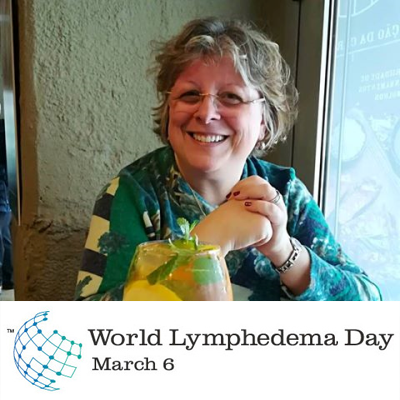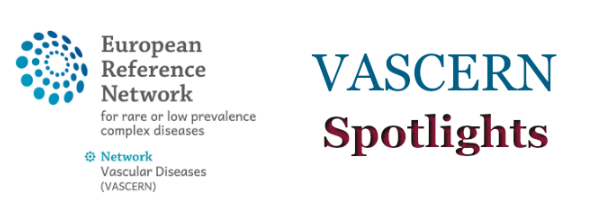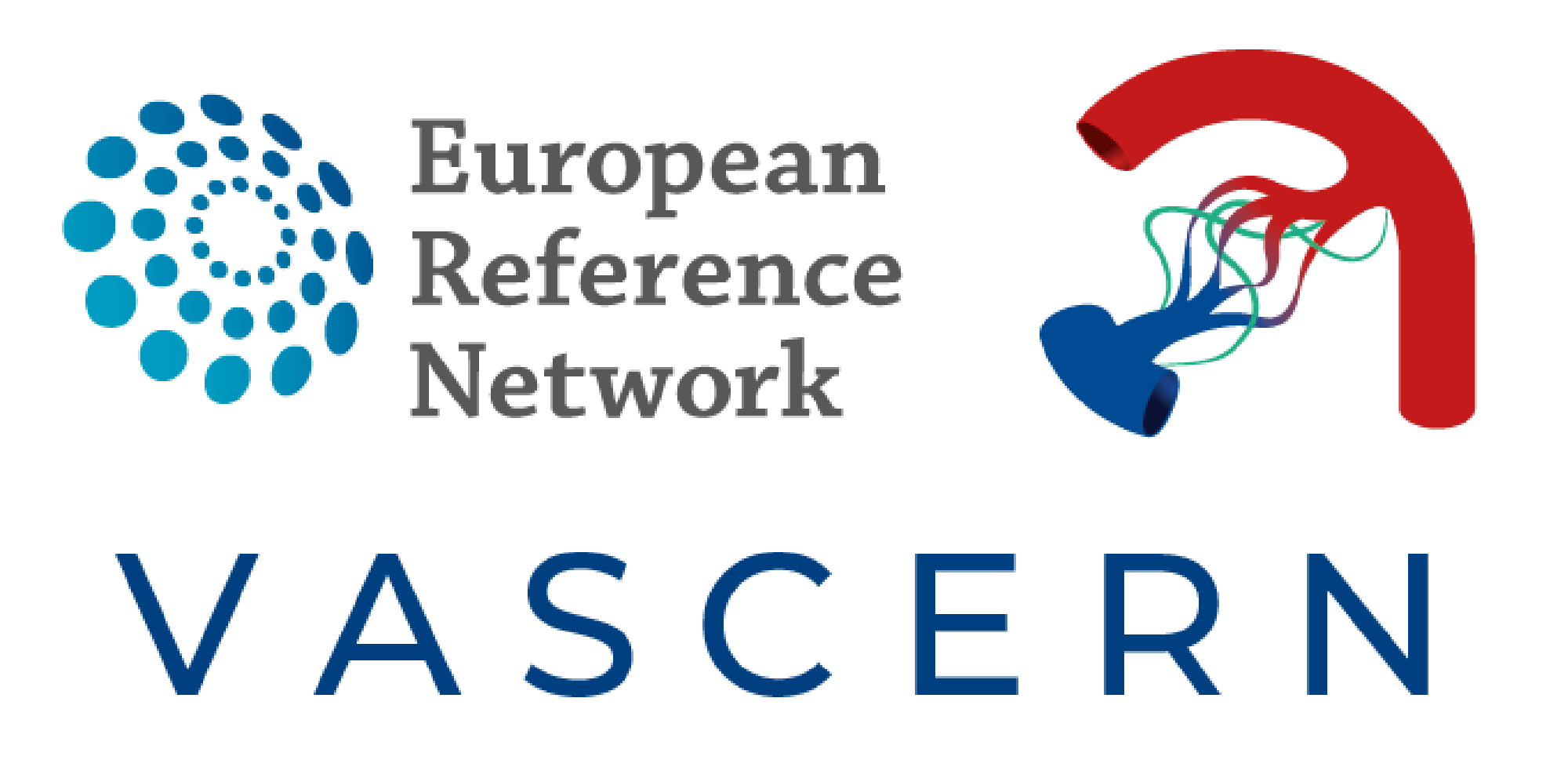

This month we have the pleasure to interview Manuela Lourenço Marques from Portugal. Manuela is the European Patient Advocacy Group (ePAG) Deputy Co-Chair for the Pediatric and Primary Lymphedema Working Group (PPL WG). She shares her story of becoming a patient advocate, starting a patient association, and what she values most about being a part of VASCERN.
1. How did you become involved in the VASCERN project?
My story starts when I decided to talk about my primary lymphedema. This occurred after being admitted to the hospital four times for cellulitis in one year, with the last time resulting in sepsis and a one month hospital stay. It was after I recovered that I decided I must finally take more care of myself. My doctor had always pushed me to try various therapies but I had always thought that I could handle it with compression garments alone. After my long hospitalization I decided to finally take my doctor’s advice and go to the Földi Clinic in Germany (HCP member of the PPL WG), as there are no multidisciplinary clinics in Portugal that specialize in primary lymphedema care. We have better services for secondary lymphedema, as secondary lymphedema is linked with cancer in the majority of cases and cancer centers have an answer for it. I felt very privileged to be able to go to Germany as very few have the same opportunity, but due of my severe lymphedema my hospital sent me there for treatment. While I was there I learned so much and I met so many people with primary lymphedema that I felt that I must share this valuable experience with other primary lymphedema patients. The majority of the information on my disease is in English, with almost nothing in my native language. I therefore wished to spread the word through the Portuguese community, starting in Portugal but also to all other Portuguese speaking patients around the word. This is why I decided to start a blog in Portuguese in 2013 and it was then that I started meeting others in the primary lymphedema community.
Through my blog, I was contacted by Pernille Henriksen, ePAG Co-Chair for PPL, who invited me to join the ePAG group for PPL. That was how I became involved in VASCERN in June of 2019. I joined as I believe it is very important to have a patient voice in these networks in order to improve treatment and care for rare disease patients.
Many people don’t even know about the lymphatic system, which is why it is so important to share and talk about it and to stop misinformation from being spread.
2. How do you as an ePAG patient advocate participate in the activities of VASCERN?
I am deputy Co-Chair for the PPL WG. At first I didn’t know much about VASCERN, the European Reference Networks, the ePAG and the various titles and positions but slowly I am learning more and more. My motto is to never stop learning. So I collaborate as a patient and I want to make sure that the patient’s position is heard; I do not want to be just a fly on the wall! It is very important that we as patients share our experiences, coming from various European countries, so we can learn from each other and improve things in our country. I have participated in many activities in the PPL WG such as the production of the Lymphedema from a Child’s perspective Pill of Knowledge video.
3. What is one thing that you would like the general public to know about the reality of living with a rare disease?
One of the most difficult things to realise is that we can be open and share our rare disease experience with others and, also, learning to deal with how others react to this. Having a rare disease is not easy, but if we talk about it this can help. As a woman, my rare disease is not a nice one as we like to have pretty legs and mine are not “perfect”, especially after my various episodes of cellulitis…but I am grateful because I have legs! I deal with the condition the best I can and try to explain what lymphedema is to others so that there is more awareness. I remember one of my earliest experiences with this, when I was in a bus and a child pushed my foot with her finger and said “it’s just like a balloon!” Many people don’t even know about the lymphatic system, which is why it is so important to share and talk about it and to stop misinformation from being spread. That is what I do when people ask me about my condition in person or via my personal blog, where I have many people contact me with questions that I am happy to answer (of course telling them that I am not a doctor but that I can share my personal experience). I realize that I can speak to patients from anywhere, even as far as Vietnam, and it is so important to speak about it.
What I have enjoyed most about this experience is meeting all of the other ePAG patient advocates – not only those that have the same rare disease as I but the whole VASCERN ePAG. While we may all have disease-specific issues, the general goals and challenges are similar for rare disease patients and for me it is so important to all work together.
4. Can you tell us a little about your rare disease and/or the patient association that you represent?
I feel very privileged as after visiting many doctors, one of the doctors I consulted was able to diagnose me with primary lymphedema. Since then he has always tried to find the best treatment for patients like me. If any of his patients ask him a question that he does not know the answer to, he tries to find the information. He was the one that pushed me to start a patient association, along with other patients who also felt the need for this in Portugal. I was reluctant at first but I had to eventually agree that this was the only way to make our voice/needs became more clear and strong, even though I always knew that it would be a long journey and not always an easy one. After the blog, the association became the natural next step so I created the patient association, andLYMPH/ National Association of Sufferers of Lymphatic Disorders, in 2015. We have around 100 patient members, with the majority of them having primary lymphedema, which is unique in Portugal, until now. We have started organizing activities as well as meetings in Portugal where we have had lots of patients and healthcare professionals attend. It is hard work, but this is normal as it is what we do in our spare time, often after work. I’m slowly reaching the age of retirement and while I know I am not irreplaceable, I want to make sure that this organization always exists and that we remain an independent association that provides support to patients.
5. What has been your most memorable moment as an ePAG patient advocate so far?
What I have enjoyed most about this experience is meeting all of the other ePAG patient advocates – not only those that have the same rare disease as I but the whole VASCERN ePAG. While we may all have disease-specific issues, the general goals and challenges are similar for rare disease patients and for me it is so important to all work together. In regards to the PPL patient advocates, we are working really well as a group and it is so nice to see that although we may have different points of view and different levels of knowledge, it is by combining our various strengths all together that we can make a difference. It is as a group that we are stronger! A great example of this is the work we all achieved for World Lymphedema Day.
I have just started the EURORDIS Leadership School this year as well, which will be very beneficial as I can learn more from the experience of others. It was also so nice last year to go to London for the PPL WG face to face meeting and in Brussels to VASCERN Days 2019, where I met and talked to all of the members, but what is the most important and meaningful for me is to grow with the other ePAG patient advocates so that we can reach our common goals.
I think the ERNs can give a push to national health ministries so that they can see what is offered in other countries and step by step we can reduce any inequalities and advance and improve the treatment offered to all rare disease patients in Europe.
6. As a patient advocate, what is your hope for VASCERN and for the ERNs in general?
I hope that the ERNs give patients a louder voice, so that we are never just an observer when it comes to our care. I think it is important to have a voice, while knowing our position as patients, as we each have unique experiences on our own disease that we can bring to the table and we can share the ways we deal with it in our individual countries. In regards to Brexit, I hope we can find a way to continue to work with the UK healthcare providers as I feel that their knowledge is very important to the group.
ERNs can help us learn that there are different answers and solutions to be found in different countries in regards to rare disease management and care. After my stay at the Földi Clinic, where they offered an intensive therapy program (manual lymphatic drainage twice a day, bandaging, sports, etc.) plus some training in self-bandaging, I could return to Portugal and try to apply everything I had learned. I am happy to say I have not had any serious complications that require hospitalization since. Now some of the hospitals in Portugal are starting to offer lymphatic therapy to primary lymphedema patients, but it is a very slow process – although the important point is that we are starting. I think the ERNs can give a push to national health ministries so that they can see what is offered in other countries and step by step we can reduce any inequalities and advance and improve the treatment offered to all rare disease patients in Europe.


